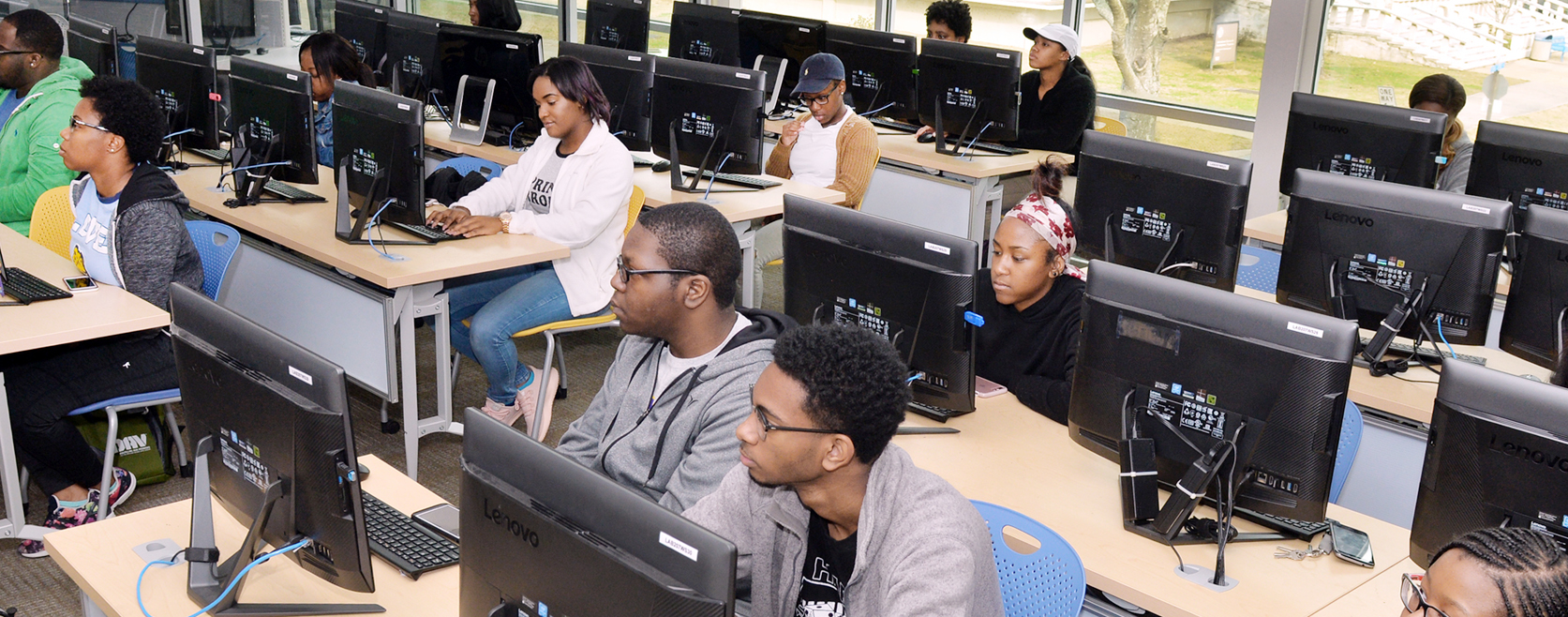Student Support Services

STAR: Center for Student Success
Student Success Mission: The Student Success (SS) promotes self-efficacy and growth while providing concrete strategies and support resources to foster critical thinking and facilitation of academic success.
Student Success Vision: To provide comprehensive learning support to ensure students are equipped with the necessary tools for academic success.
Main Office & Tutoring: Harris Hall Annex Suite C
Office Hours: 8:00 a.m. to 5:00 p.m., Monday through Friday
Telephone: (225) 771-4312
E-Mail: success@subr.edu
Learning Centers:
SS Learning Center: Stewart Hall Room 155
CSE Learning Center: Pinchback Hall (ISTAR) Room
COB Learning Center: T.T. Allain Hall Rooms 227 & 229
Testing Center: Stewart Hall Room 155
Social Science Lab
The Social Science Lab is for graduate students in the Nelson Mandela College. The lab is equipped with 25 mobile computer kiosk stations that are equipped with SPSS and STATA statistical software. It is an environment for learning, research and scholarship enhancement.
The Social Science Lab is located on the 4th floor of Rodney G. Higgins Hall in Room 426
Hours of Operation are 8am - 5pm (Monday-Friday) and by Reservation
Saturday Institute
Graduate professors host lectures and provide tutoring to support student advancement and program matriculation in graduate endeavors. The Saturday Institute is managed and facilitated by Dr. Onyumbe Lukongo.
Every 2nd and 4th Saturday of the month: 9 am – 1 pm | 4th floor of Rodney G. Higgins Hall in Room 412.
Teatime
Professional Advisement and Career Guidance for the graduate student. This service is offered by the Internship and Placement Director, Professor Blanche Smith on Tuesday’s and Thursday’s 1:00 pm – 4:00 pm in Higgins Hall Room 115. Students are taught everything from professional attire, resume writing, interview skills and much more.
Writing and Communications Center
Goals and Purpose
To provide students across campus with help in drafting and revising communication-centered work in order to improve their skills as effective communicators.
Communication-centered work includes written, technological, visual, oral, and multi-modal.
- Written: Research, persuasive writing or rhetoric, composition, professional writing (emails, resumes), creative
- Technological: Using digital media to convey a message, virtual design in class work, properly using the Internet to find sources for research papers
- Visual: Projects, Powerpoints, Prezi, art as language
- Oral: Giving a speech, professional rhetoric and presentation of self
- Multi-Modal: A blend of two or more modalities—print, text, visual, sound, etc.
Mission and Philosophy
To provide an active, student-centered approach to improving communication-centered work.
Location: Stewart Hall Room 140
